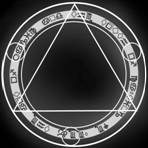|
Books: The following contains the listing of spells known for each school as well as descriptions of the spells. Also included are general principles of each of the school and what is to be expected from each.
Theories of Magic: Eons ago, the first mage learned to channel the mist about them into magic and cast the first spell. Though the name of that mage is lost to history, current mages still attempt the same as he did, to understand what and why it is they cast. Spells are focused by the speech. While it helps some mages to also gesture in order to direct their spell or to remember words, gestures do not have to be used. Also, a mage must be upon their feet to cast as the energy required must be actively gathered, and one cannot be at a state of rest. As the mists birthed all of us, so does it touch all of us in different degrees. Some races are more adapt at magic than others and within each race, there will be individuals who are born with a stronger connection to the mists. Often, those that are born under the sign of the mists will find themselves with a greater attraction to the mists and to magic. Mages collect the mists within themselves, which when they do, is often called mana. The greater the connection to the mists, the more mana a mage will be able to draw into themselves. The accumulation of mana takes time, but with rest or meditation the process can be speed along. Cantrip is the basic spell for all magic and different cantrips can give a mage a sense of what it is to cast different kinds of spells in different schools. Cantrip is the first spell which all mages must master and one of the measures of magical knowledge is number of cantrips known. While it is unknown how many cantrips are in existence, mages should never stop their study of them, because it opens doors into the art of casting different kinds of magic. To cast a spell, a mage draws upon their mana and through magic words, shapes the spell into it’s affect. Once cast, the mana is sacrificed to spend the needed energy for the spell. However, the energy eventually returns to its natural state of mana and will return to the mage. Spells which instantly cause an affect, revert from energy to mana instantly. Those spells which have longer durations, slowly revert from energy to mana. All spells revert to their natural energy state, eventually. However, there are a few spells which their time period to revert from energy to man has been stretched out to near infinite. A spell will always require the same energy cost, either by the cost of casting it, or by spending energy to memorize it and then using slightly less energy to cast it. A spell must convert all of this energy back to mana and will do such when cast. The energy cannot be withheld or converted ahead of time. Because of this, the strength of a spell cannot be controlled by a mage. Either one casts a spell at their full ability or they do not cast at all. The mists are limited in their ability to create and must always draw off what is present and what exists. One will not be able to summon an air elemental if they are underwater as they will not be able to call forth water where it is not present. Expecting this of magic is foolish and can easily get a mage killed if they are arrogant enough to assume all of their spells will work in all situations.
Teaching Magic: As spells were slowly discovered, many of them were placed into their own schools of study and methods for tuning these spells were constructed and are now taught to all students. However, it must be remembered that all magic comes from the same place and as such, any mage can teach any other mage methods by which to improve their casting. Even though they may not be able to teach them specific spells, a mage benefits by learning from all mages. There are a variety of methods which any one student can learn magic, but generally, most students take best to having a mentor with which to cast with. Mentors can best teach their students by casting spells before them and by observing the way in which their charge casts. Mages should be taught and understand patience. To learn a spell, a mage must study what they have done wrong and right between each casting. Doing such will actually allow a mage to learn a spell faster than simply casting it as many times as possible as fast as possible. By casting, mages will also learn the art of magic, the ability to sculpt and design the mists to their wishes and needs However, no mage is a true master of the mists and can have it turn upon them. Abuse of magic, be it spells, creatures, or objects, is often the primary reason which the mists turn upon the caster. However, the mists are also chaotic and can often express a will of their own. No matter how careful or how thoughtful a mage, they will eventually have one of their own spells backfire or a summon turn on them. This is simply the nature of the mists and must always be remembered. Care should be shown in all casting and in the application of magic. Magic is not a sword and mages are not barbarians. Magic is not meant to be thrown wildly in the hope it may strike something. It take great skill to control and master a spell and those who fail to find this will always fail at magic. |

